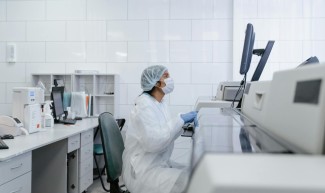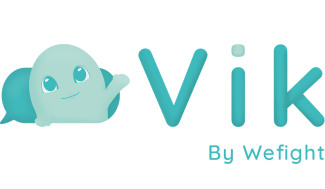Launched in 2018, the "Sleeping Beauties" project makes it possible, in collaboration with the best medicinal chemistry laboratories, to rationally test and develop molecules of therapeutic interest in the field of diseases of the nervous system.
The mission of the Sleeping Beauties Innovation Unit is to identify and develop promising molecules, and to enable their pharmaceutical development by taking them through to the patient clinical trial phase. The Sleeping Beauties innovation unit acts as a bridge between academic research and the first human trials.
Within the Innovation Department, the Sleeping Beauties team leads translational programs in collaboration with the Institute's researchers and clinicians, covering several therapeutic indications including amyotrophic lateral sclerosis, glioblastoma, multiple sclerosis and neuroinflammation. These translational programs draw on the Institute's strengths: knowledge of the biological mechanisms of diseases, identification of innovative therapeutic targets, development of unique study models developed by researchers, and the medical expertise of clinician-researchers. In addition, the Institute's ability to federate external innovation players (research centers, biotech, IA tech, pharma, international consortia) around Sleeping Beauties projects strengthens and optimizes its efforts through increased synergy.
These programs share a common ambition: to have a rapid and significant impact on patients. They are diversified in terms of stage of development, enabling us to maintain a balanced, de-risked portfolio of molecules in development. To carry out these large-scale translational programs, the Innovation Department establishes partnerships with private companies (pharma, biotech, IA tech). These strategic collaborations enable us to share resources and risks, and ensure accelerated development towards a potential treatment for patients.
Discovering new molecules
A close collaboration between the Institute's researchers, the Sleeping Beauties unit and medicinal chemists from renowned French laboratories has been established, based on the conviction that new, potentially therapeutic small molecules lie dormant in chemistry laboratories.
The medicinal chemist partners supply their new molecules to the Sleeping Beauties unit for testing on cell models of neurological pathologies such as multiple sclerosis, Parkinson's disease, neuroinflammation or glioblastoma, developed by the Institute's researchers. Sleeping Beauties' scientific approach is based on standardization (step 1) and the use of so-called phenotypic tests (step 2), in which the effect of a molecule on a cellular marker is evaluated.
The most promising new molecules are subjected to a series of tests and analyses, including toxicity and pharmacological efficacy tests, and structure-activity relationship (SAR) analyses to understand how small structural changes influence their biological activity (step 3). All the information gathered will be used to select new active molecules which will be optimized to improve their efficacy, stability and safety (step 4). Once these steps have been completed, active molecules can be developed at the Institute through the NeurAL program, or through partnerships with industry, which will accelerate their entry into the clinical phase.
The development of new molecules cannot be achieved without a thorough understanding of the pathophysiological mechanisms of disease, and this is at the heart of the work carried out by the Institute's researchers. Using methods based on large-scale biological databases and artificial intelligence algorithms, the Institute's researchers can detect new therapeutic targets and identify molecules capable of modulating defective cellular processes.
Once a promising target or molecule has been identified, the Sleeping Beauties unit works in partnership with experts in pharmaceutical development. Our role is threefold: firstly, to help find (in vitro screening) and optimize molecules to modulate the new target; secondly, once the Institute's researchers have already identified a candidate molecule, Sleeping Beauties draws up the pre-clinical development plan to gather the necessary evidence of safety and efficacy before moving on to clinical trials. Finally, Sleeping Beauties seeks to establish targeted partnerships that will remove technological barriers or accelerate the development of these molecules.
De-risking: AI and molecule repositioning (use of existing molecules for a new indication)
The Sleeping Beauties unit collaborates with external partners, notably companies specializing in systems biology and Artificial Intelligence, to systematize the approach of the Institute's researchers to the discovery of innovative targets.
We prioritize the selection of repositioning molecules to modulate these new targets. Molecule repositioning consists in reusing molecules already tested in clinical phases but not marketed, or drugs already approved for new therapeutic indications. Access to these molecules may require partnerships with the pharmaceutical companies that own them.
This approach has several advantages:
- Proven safety: repositioned molecules or drugs have already been evaluated in patients, and the available safety data make it possible to anticipate potential side effects to some extent
- Cost and time savings: the development of new treatments is accelerated and less costly thanks to the pharmacological knowledge already accumulated on these drugs.
Using these strategies, the Sleeping Beauties unit and its private partners can not only de-risk the development of new therapies, but also optimize resources and bring therapeutic solutions to patients more rapidly.
The development of therapeutic molecules presents considerable challenges, particularly for neurodegenerative diseases. The complexity of the mechanisms involved, the blood-brain barrier limiting drug access to the brain and the difficulty of obtaining representative animal models are major obstacles. In addition, evaluation criteria for the treatment of these diseases are extremely demanding, requiring demonstration of the ability to slow or reverse progression, as well as long-term safety of use.
By pooling the Institute's strengths - researchers, clinicians, pharmaceutical development experts - and collaborating with the best players in innovation, Paris Brain Institute is fully committed to finding and bringing new treatments to patients suffering from neurological diseases.







